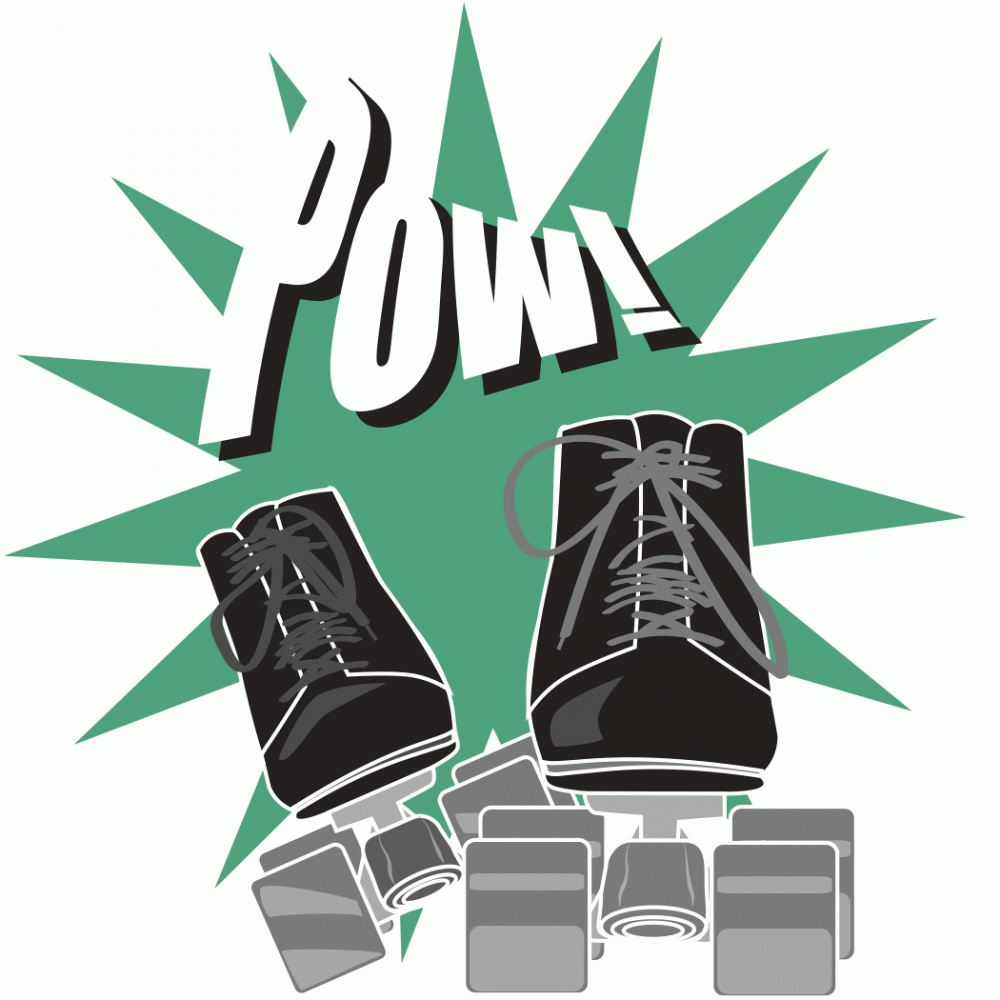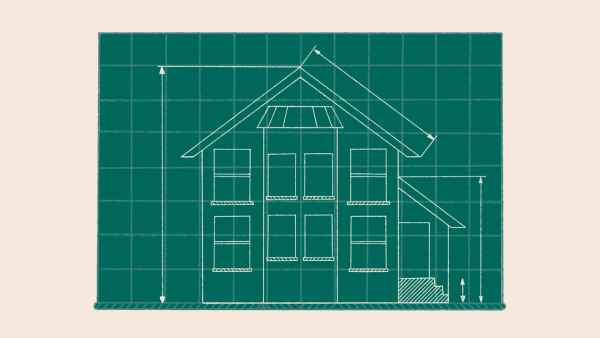Roller Derby Rough N' Tumble
In the past few years, roller derby has surged in a popularity not seen since the campy, televised bouts of the 1970’s. But the derby of today isn’t the same choreographed sport your dad watched on TV. There aren’t clothesline trips, elbow jabs or planned endings to the bouts. Instead, roller derby has become a serious sport, creating a niche community. The sport means something a little different to each skater on the track and fan in the stands.
The DC Rollergirls started with a group of players practicing in parking garages seven years ago, and have since transformed into a local league with a rapidly growing fan base and a competitively ranked all-star team.
Despite their varied backgrounds, many of the skaters stumbled across roller derby by chance and all refused to let anything prevent them from strapping on a pair of skates and competing in the league.
“It just happened exactly at the right time,” said Mara Veraar, who has skated for the past seven years as Scarlet O’Snap of the Cherry Blossom Bombshells. “I thought that I would do it just to make friends—and that is a big part of it— but what I really found to was that I forgot how much I loved sports when I was younger. I realized, ‘Oh, I really am athletic! I really want to be a part of a team sport!’ And the athleticism and the camaraderie have both been important to me.”
Kari Ryder-Wilkie, who skates as Queen Kamayhemmayhem for the Cherry Blossom Bombshells, said she first caught the derby bug six years ago.
“I heard about it and went to go see a bout, and was immediately fascinated and really wanted to play. It was kind of love at first sight,” Wilkie said. Wilkie was finishing up her graduate degree at Boston University when she decided to start training and tried out for a spot in the local roller derby league.
“I had one friend who was kind of interested in doing it with me— and the first day we went out to the roller rink, I broke my arm,” Wilkie said. “That kind of killed it for her, but it didn’t kill it for me.”
Wilkie stuck with it through the injury and moved to DC over three years ago, where she joined the Bombshells and still enjoys the rough and tumble of the game.
The shoulder slams, booty bumps and all the scrambling to block the other team’s jammer might all rile the crowd up at the bout, but even the audience knows how quickly a jam can run afoul when a skater gets slammed down hard.
Cheers swiftly turned to shocked silence during the December 8th game when Jersey Kill of the DC Demoncats twisted and crashed to the ground in one of the last jams in a bout with Scare Force One. Kill, the lead jammer, managed to touch her hips and call off the jam as she slammed to the floor—but didn’t get up. Enthusiasm turned to concern as the music stopped and the audience fell silent. Flanked by referees and EMTs, Jersey Kill cautiously pushed herself from the floor—twisting a grimace of pain into a grin and raising an arm above her head to uproarious cheers.
Kill finished out the bout with a determined grin on her face, even though her team fell 93-270 to the undefeated Scare Force One. But other skaters have faced more than bumps and bruises after going down in a game.
Wilkie is one of them. She is out for the next few weeks on a hip injury, and was able to walk around without crutches for the first time in two and a half weeks during the last practice before December’s double-header. She said she only found out about the extent of the damage to her hip after telling a doctor during a surgery follow-up after injuring her elbow.
Despite the risk of injury, many skaters take the physical contact inherent to the sport in stride and keep coming back for more.
“I think one of the things that got me into it was just that it looked awesome—I mean, you’re on roller skates and you’re hitting people,” said Allie Feras, who is entering her second season of skating as Frak You for the Majority Whips. “But I think one thing that keeps me around even when I’m tired, or feeling down about my own ability or anything is the community. Everybody’s very supportive. So even if you’re having a bad day, it’s kind of like your own little family.
She stuck with the sport after being teamed with the newly formed Majority Whips two years ago. At the time, she was completing a graduate degree and working full time. She says she has a little more time now that she has finished her degree, but that juggling work and derby proves challenging at times.
“Sometimes it’s exhausting when you get home from practice really late and then you’d have to be up really early for work or when you’re travelling for derby stuff and you have to convince your boss that you can’t be at work because you have to go roller-skate,” Feras said.
Feras and her teammates on the Majority Whips faced off against the Cherry Blossom Bombshells during the last double-header. The team narrowly lost 117-123, in a bout that hinged on a series of jams in the last few minutes of the game.
Plenty of fans packed the bleachers at the Armory for the bout. The whole league hopes to capitalize on the draw of the sport as they face the challenge of considering how best to sustain the league and the community they’ve created.
Their aspirations include purchasing a warehouse for practices, getting a rec league off the ground and potentially forming a junior offshoot of the league. During the December eighth double header, volunteers sold shirts and baked goods made by skaters in an effort to help raise money to fund the costs of expansion.
Interested skaters don’t need to buy out a warehouse to get started in the sport, of course. Anyone with a roll of tape, a bit of space and a pair of skates can play flat track derby— but it takes a certain sort of determination to go from free-spirited skating to the time consuming work of running a Women’s Flat Track Derby Association (WFTDA) member league.
“They always say that half of derby is getting used to how many nights a week you practice, and the other half is getting used to how many emails you get,” Verarr said. “We run this whole league. We’re on the board of directors, we’re the heads of every committee, we’re the ones setting up volunteers, we’re the ones doing fundraisers—so it’s just a million emails.”
Doing the legwork on the track and behind the scenes is a handful, but being skater-run is a requirement for participation as a WFTDA member league.
“They didn’t want to get in a situation where it was some guy or some girl owning the league and not having the skaters’ best interests in mind,” Veraar said. Even though skaters run the league, they receive plenty of help from volunteers and referees who help run the show on bout day.
Colin Burke, known as Refsputin when clad in the black-and-white officials’ uniform, first fell into roller derby seven years ago as the DC Rollergirls were just getting on their feet. Burke said he became interested after his girlfriend wrote an article about the DC Rollergirls, and suggested he act on his interest and start refereeing bouts.
“I was like, ‘Wait, there are referees in roller derby?” Burke said.
Today, referees and officials usually volunteer as non-skating officials and go through a certification program after they get used to watching the game while gliding around on a set of wheels. Burke said that since he started out when WFTDA was still getting organized, becoming a ref was a little bit different.
“When I started, everybody was learning—so there wasn’t anything set up,” Burke said. “Now there’s a little more structure to it, and there’s a lot more help from the WFTDA. I’m one of their officiating clinic instructors, so now I teach people how to do it.”
Burke doesn’t just stay in the city with the league that drew him in to the sport. He travels to ref games with the DC Rollergirls’ All Star team, and even helps officiate games in other leagues as well.
“I’ve been to Ohio, Pennsylvania, New York, Maine, North Carolina, Virginia—pretty much everywhere.” Burke said. “I also ref several tournaments a year, and those are in Philly, Vermont, Buffalo— all over the place. I do a lot of travel for derby, and I work a lot of different bouts that have nothing to do with the DC league.”
Wilkie says that the sense of community among skaters definitely extends beyond the city and the league. She isn’t too worried about being separated from the sport if she ever moves out of DC.
That’s not to say all skaters stick with derby forever. Varaar says that she’s the only player who has been skating with the Bombshells since they first started up seven years ago. Teammate Wilkie adds that several others left the sport during the three years she has been with the team after getting bogged down with life commitments and work.
But those who stick around do so because they’ve found something uniquely meaningful in the sport and the community it creates. It’s a network of players with common goals and interests, a place for people who want to compete without giving up their day job, and for some a riot grrl mentality informed by a do-it-yourself determination.
Rollergirls spend their time juggling fundraising for the warehouse with squeezing in plenty of practice for the next bout— and just having a good time with like-minded skaters.
“I think the great thing about it is that it’s so many different things to different people,” Wilkie said. “I just think people are finding something there that doesn’t exist in any other place in society. If I didn’t want to do derby— I can’t think of anything else that would replace all of the things that derby is to me.”
Illustration by Ellyse Stauffer










